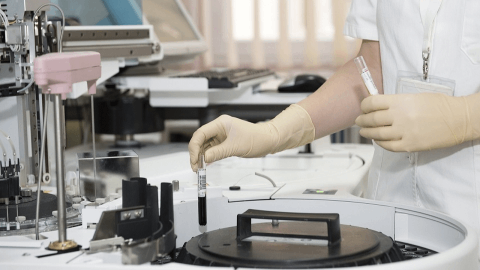更新于:2024-11-01

Rejuvenate Biomed
更新于:2024-11-01
概览
标签
其他疾病
神经系统疾病
小分子化药
关联
5
项与 Rejuvenate Biomed 相关的药物靶点- |
作用机制- |
在研机构 |
原研机构 |
在研适应症 |
非在研适应症- |
最高研发阶段临床1期 |
首次获批国家/地区- |
首次获批日期- |
靶点- |
作用机制- |
在研机构 |
原研机构 |
在研适应症 |
非在研适应症- |
最高研发阶段临床前 |
首次获批国家/地区- |
首次获批日期- |
靶点- |
作用机制- |
在研机构 |
原研机构 |
在研适应症 |
非在研适应症- |
最高研发阶段药物发现 |
首次获批国家/地区- |
首次获批日期- |
100 项与 Rejuvenate Biomed 相关的临床结果
登录后查看更多信息
0 项与 Rejuvenate Biomed 相关的专利(医药)
登录后查看更多信息
10
项与 Rejuvenate Biomed 相关的新闻(医药)2024-10-29
The Phase 2 double-blind placebo-controlled clinical trial will evaluate the potential of RJx-01 to maintain muscle integrity in older persons with severe acute exacerbation of COPD
Rejuvenate Biomed anticipates commencing patient enrollment first half 2025
Oct. 28, 2024 -- Rejuvenate Biomed, the University of Leicester, the National Institute for Health and Care Research (NIHR) Leicester Biomedical Research Centre (BRC), and Wellcome Leap Inc. announced today that they have entered into an agreement to execute a Phase 2 clinical trial in patients with chronic obstructive pulmonary disease (COPD)-related sarcopenia.
COPD is the third largest cause of mortality worldwide1, and one of the major long-term conditions leading to disability. While COPD is primarily a lung disease, it has significant systemic effects that extend beyond the respiratory system, including impaired skeletal muscle mass and function, also referred to as sarcopenia. Often, people living with COPD end up in hospital with a flare-up of their condition, where there is further worsening of their physical function. These systemic manifestations of sarcopenia for which therapeutic interventions are lacking, are important predictors of mortality, morbidity and healthcare utilization independent of the severity of lung function impairment. As such, there is a strong rationale for the development of pharmaceutical agents that target skeletal muscle dysfunction in patients with COPD to improve overall patient outcomes.
In a Phase 1b trial, Rejuvenate Biomed’s novel combination drug RJx-01 demonstrated great potential as an oral treatment for sarcopenia, showing meaningful improvements in muscle strength, function, and fatigue resistance in people with disuse-induced muscle weakness.
The new study, a double-blind placebo-controlled trial, will evaluate the safety and tolerability of RJx-01 in 130 older individuals following hospitalization with severe acute exacerbation of COPD. In addition, the effects of RJx-01 on physical function, muscle strength and fatiguability will be assessed.
The clinical study is enabled by a multimillion dollar award from Wellcome Leap’s Dynamic Resilience program (co-funded by Temasek Trust). The Dynamic Resilience program aims to improve biological resilience in clinically vulnerable people at-risk of adverse outcomes after a stressor event, by identifying resilience biomarkers and mechanisms and facilitating proof-of-concept studies and clinical trials of potential preventative interventions. This study will be led by Dr. Neil Greening and Dr. Hamish McCauley from the NIHR Leicester BRC at University Hospitals of Leicester NHS Trust.
“We are grateful for the support of NIHR Leicester BRC and Wellcome Leap as we explore the potential of RJx-01 as a treatment for patients living with COPD suffering from muscle weakness,” said Dr. Ann Beliën, Founder and Chief Executive Officer of Rejuvenate Biomed. “Positive results from our recent Phase 1b study underscore RJx-01’s potential to prevent and treat sarcopenia induced by other conditions, and improve patients’ quality of life. We look forward to initiating this Phase 2 study in COPD patients.”
Dr Neil Greening, Associate Professor at the University of Leicester, said, “Muscle wastage is a significant burden for many of our COPD patients and it can impact on their ability to recover, particularly when they are in hospital and experiencing exacerbations. Finding ways to maintain muscle function is increasingly important, which is why we're delighted to be working with Rejuvenate Biomed and on this world-first study, enabled by Wellcome Leap.”
Prof Lynne Cox, Program Director of Wellcome Leap’s Dynamic Resilience program, added: “We urgently need treatments that can help prevent muscle wastage and frailty progression when people are hospitalized with acute illness, to enable them to return home and live safely and independently. We are therefore excited to support the globally excellent clinical, academic and industry teams in this study which addresses that major unmet need.”
Institute for Health Metrics and Evaluation. Global Burden of Disease Study 2019 (GBD 2019) results. Seattle, WA: Institute for Health Metrics and Evaluation, 2019
Rejuvenate Biomed is an AI-powered, clinical-stage biotech company decoding the biology of aging to develop safe, synergistic combination therapeutics that holistically address the root causes of age-related diseases. By targeting multiple disease pathways simultaneously, the company aims to provide more effective treatments that can alter the course of disease. Utilizing two clinically validated proprietary drug discovery platforms, the AI-enabled in silico CombinAge™ and in vivo CelegAge™, Rejuvenate Biomed has generated a robust pipeline of five unique combination drugs targeting different age-related diseases, including neuromuscular, musculoskeletal, metabolic, cardiovascular, nephrological, and neurodegenerative indications. Its lead Phase 2-ready asset, RJx-01, has already demonstrated significant potential in treating sarcopenia. The company’s disease agnostic drug discovery platforms continue to provide insight into future therapeutics, driving pipeline growth and potential partnerships. Rejuvenate Biomed is dedicated to promoting healthy aging.
The National Institute for Health and Care Research (NIHR) Leicester Biomedical Research Centre (BRC) is part of the NIHR and hosted by the University Hospitals of Leicester NHS Trust, in partnership with the University of Leicester, Loughborough University and the University Hospitals of Northamptonshire National Health Service Group. The NIHR Leicester BRC undertakes translational clinical research in priority areas of high disease burden and clinical need.
Wellcome Leap builds and executes bold, unconventional programs, funded at scale. Programs that aim to deliver breakthroughs in human health over 5 – 10 years. Founded in 2020, Leap programs target complex human health challenges with the goal of achieving breakthrough scientific and technological solutions. Operating at the intersection of life sciences and engineering, Leap programs require best-in-class, multi-disciplinary, global teams assembled from universities, companies, and nonprofits working together to solve problems that they cannot solve alone.
The content above comes from the network. if any infringement, please contact us to modify.

临床研究
2024-08-02
The organizations say this collaboration uses the strengths of both to create a cutting-edge platform designed to uncover new insights into drugs, diseases, and biological networks by systematically exploring hidden biological patterns.
The new discovery tool, to be developed on SAS Viya, a robust cloud-native AI and data platform, will, they say, combine Rejuvenate Biomed’s clinically validated AI-driven drug discovery capabilities with SAS’s extensive AI expertise. This collaboration is promising to enhance the efficiency and effectiveness of drug repurposing efforts, particularly for age-related diseases.
“Our partnership with SAS amplifies the core strengths of both our R&D teams,” said Dr Ann Beliën, founder and chief executive officer of Rejuvenate Biomed. “By embracing this partnership and leveraging the capabilities of SAS Viya, we expect to meaningfully de-risk and accelerate the development of our internal portfolio while enhancing our discovery platform and partnering capabilities.”
The low-code tool is designed for ease of use, allowing bioscience researchers with limited coding experience to harness powerful analytics. It will also serve advanced computational biology teams by providing a foundation for developing sophisticated analytics models. The tool will utilize SAS Visual Analytics for creating comprehensive reports, enabling researchers to derive actionable insights from complex biomedical data.
“Our collaboration with Rejuvenate Biomed places us at the forefront of AI in biomedical research, reinforcing our commitment to supporting cutting-edge applied AI and analytics through SAS Viya,” said Udo Sglavo, vice president of Applied AI and Modeling at SAS.
googletag.cmd.push(function () {
googletag.display('text-ad1');
});
“Rejuvenate Biomed’s endorsement of SAS Viya to further develop their unique and proprietary drug discovery engine is a testament to our commitment to being the premier provider of structured and scalable AI solutions that enhance data analysis efficiency and accelerate the entire drug development life cycle.”
This partnership not only equips Rejuvenate Biomed with the tools to scale its drug discovery platform but also strengthens its capacity to provide third-party services and expand its drug development pipeline. By utilizing AI to uncover non-trivial and novel biological interactions, Rejuvenate Biomed aims to accelerate the identification of potential therapeutic candidates and advance their development.
Rejuvenate Biomed is a clinical-stage biotechnology company focused on developing therapeutics targeting the root causes of age-related diseases. Using its AI-enabled in silico CombinAge and in vivo CelegAge platforms, the company has built a pipeline of unique combination drugs addressing various age-related conditions, including neuromuscular, musculoskeletal, metabolic, cardiovascular, nephrological, and neurodegenerative diseases. Its lead asset, RJx-01, is phase 2-ready and has shown significant potential in treating sarcopenia.
Rejuvenate Biomed said its disease-agnostic drug discovery platforms will continue to generate insights for future therapeutics, driving pipeline growth and fostering potential partnerships. Based in Belgium, Rejuvenate Biomed the company says it is committed to promoting healthy aging and advancing the science of age-related disease treatment.
临床2期
2024-08-02
As people live longer and the ageing population grows, more innovators are entering the field with AI-based solutions. Credit: PeopleImages.com – Yuri A via Shutterstock.
Belgian biotech Rejuvenate Biomed has teamed up with data and AI solutions company
SAS
to create a tool for researchers to repurpose existing drugs to tackle age-related diseases at their core.
The low-code tool aims to simplify the process of analysing biomedical data. It will use SAS’s analytics to reveal hidden biological patterns and interactions, allowing researchers to create detailed reports with SAS visual analytics. The tool will be built on SAS Viya, a cloud-based AI and data platform.
According to the companies, the tool is designed to be user-friendly for researchers who don’t have a wealth of coding experience but will also be powerful enough for advanced teams working on complex biological problems.
Founded in 2017, Rejuvenate raised €15.7m ($16.9m) in a Series B round led by Zürich-based biotech Rejuveron Life Sciences in 2021. The funds built on a €3.2m ($3.46m) Series A in the same year.
The start-up has five assets under its belt, developed using its CombinAge and CelegAge drug delivery platforms. Its flagship drug, RJx-01, is ready for Phase II testing and has shown promise in a Phase I trial for the treatment of sarcopenia, otherwise known as muscle loss.
See Also:
Otsuka snaps up Jnana with its phenylketonuria drug for $800m
Molecure and Avicenna link to develop cancer drugs
Rejuvenates CEO Ann Beliën said: “Our partnership with SAS amplifies the core strengths of both our R&D teams. By embracing this partnership and leveraging the capabilities of SAS Viya, we expect to meaningfully de-risk and accelerate the development of our internal portfolio while enhancing our discovery platform and partnering capabilities.”
As people live longer and the ageing population grows, more innovators are entering the field with AI-based solutions.
A June 2024 study
published in
Frontiers in Artificial Intelligence
introduced a novel deep neural network (DNN) model with an effective algorithm for the early diagnosis and intervention of osteoporosis, a common metabolic brain disorder in the elderly.
It’s not only in the treatment space where AI is being utilised.
Professionals in the field
have emphasised how the use of generative AI, large language models (LLMs), and robotics can be used to inform and educate people about healthcare needs from an early stage, to ensure optimal ageing and ultimately improve well-being as they enter old age.
According to
a report
on GlobalData’s Medical Intelligence Center, the AI in the medical market was worth $336m in 2022 and is expected to grow to $1.2 bn by 2027.
GlobalData is the parent company of
Pharmaceutical Technology.

临床1期临床2期
100 项与 Rejuvenate Biomed 相关的药物交易
登录后查看更多信息
100 项与 Rejuvenate Biomed 相关的转化医学
登录后查看更多信息
组织架构
使用我们的机构树数据加速您的研究。
登录
或

管线布局
2024年11月20日管线快照
管线布局中药物为当前组织机构及其子机构作为药物机构进行统计,早期临床1期并入临床1期,临床1/2期并入临床2期,临床2/3期并入临床3期
药物发现
3
1
临床前
临床1期
1
登录后查看更多信息
药物交易
使用我们的药物交易数据加速您的研究。
登录
或

转化医学
使用我们的转化医学数据加速您的研究。
登录
或

营收
使用 Synapse 探索超过 36 万个组织的财务状况。
登录
或

科研基金(NIH)
访问超过 200 万项资助和基金信息,以提升您的研究之旅。
登录
或

投资
深入了解从初创企业到成熟企业的最新公司投资动态。
登录
或

融资
发掘融资趋势以验证和推进您的投资机会。
登录
或

标准版
¥16800
元/账号/年
新药情报库 | 省钱又好用!
立即使用
来和芽仔聊天吧
立即开始免费试用!
智慧芽新药情报库是智慧芽专为生命科学人士构建的基于AI的创新药情报平台,助您全方位提升您的研发与决策效率。
立即开始数据试用!
智慧芽新药库数据也通过智慧芽数据服务平台,以API或者数据包形式对外开放,助您更加充分利用智慧芽新药情报信息。
生物序列数据库
生物药研发创新
免费使用
化学结构数据库
小分子化药研发创新
免费使用